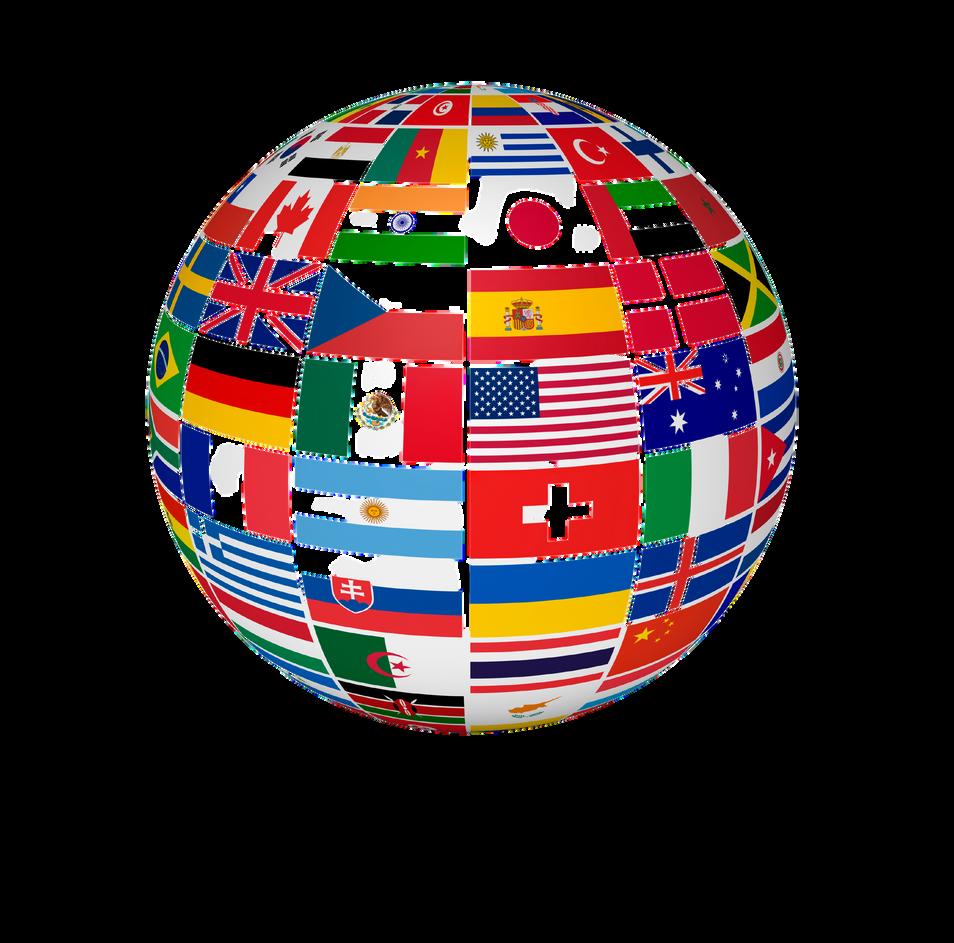The Language Corner
Multicultural Club
The Multicultural Club has been taking place all year with many new languages showcased. This has been a very successful year for the club and next year will will continue to promote cultural diversity in our community Wishing you the best for the holidays

The Language Corner
My experience of Ramadan
Many of our students take part in Ramadan. Here, Tasfiyah from TYC, tells us about her experience of Ramadan 2023
MyexperienceofRamadan
This year's ramadan went by faster than I thought, It went surprisingly well even though I got really sick during the middle of it I still enjoyed it. The best moments of Ramadan has to be the times we gather in the local mosque and eat together Usually 4 or more people offer to cook the meals for the day and it turns out delicious. The hardest times are when you are trying to find space for prayer with so many aunties everywhere then end up squished in the middle! The mosque is a great way to connect with the Muslim community during Ramadan and is a great place to find out what is happening in the community. The best part of the whole of Ramadan is knowing a huge Eid party is coming at the end where you can eat all day, dress up fancy and meet relatives you have never met before and get presents and a lot of money Even though ramadan of 2023 is coming to an end I not wait for the next Eid next year where we get to do all this all over again .
Thanks for reading!
Tasfiyah Kabir, TYC.
EXAM AND HOLIDAY TIME EXAM AND HOLIDAY TIME
Wishing all our 3rd year and 6th year students the very best of luck in the exams in June and wishing you all a great summer holiday.

May 2023
The Language Corner 祝初三和⾼ 三学⽣考试 顺利 Laiveicaseksāmenos!
эУдачина кзаменах! Ż Życzymywszystkim naszymtrzecimi szóstymroku powodzeniana egzaminachwczerwcu
AddIt’s‘Juurojtë gjithëvenjëverëtë mbarë. Shpresojmëqë diellitëshkëlqej Bainigísultas saoirean tsamhraidh
A Focus on Culture
Italy
Hope, a 5th year student, explains the festival celebrations and traditions in Italy
In Italy, as in most places, the traditions we practice today are directly connected to our history and the experiences of our ancestors There are countless traditions that make Italy the country we know and love today. These can be witnessed in our daily lives through the food we eat, the daily siesta and routines as well as at a much larger scale through the holidays we celebrate, beliefs, values and customs
Traditions are of great importance within Italian families Each family has their own unique customs and ways of celebrating events. However, there are some national holidays that are celebrated in a similar manner within the whole country. The first national holiday occurs in January. On the 6th it is tradition for an old woman, known as ‘La Befana’, to deliver gifts to children on Epiphany Eve She gives sweets to children who have been nice and coal to those who have been naughty.
The next holiday occurs between February and March. Carnevale is traditionally celebrated with Renaissance musicians, horses, dancers, and bands Many cities organize a grand parade, the most famous being in Venice The parade travels through Venice with highlights such as beautiful costumes and floats. These costumes were once used in order to conceal one's identity, allowing people to act freely without the fear of being recognized. Different cities have masks that are traditional to them including Pulcinella in Naples or Arlecchino in Bergamo
Italy's official religion is Catholicism. This means that Pasqua (Easter) is widely celebrated Many people attend Mass, families get together and feast There are many traditional easter plates including agnello, pasta, uova, casatiello, torta pasqualina, torta al formaggio and many more. There are also many deserts including sweets like the colomba, pane di pasqua and uova al cioccolato.

The Language Corner MAy 2023
A Focus on culture
Italy
Another traditional Italian holiday is Liberation Day, La festa della liberazione On this day the country commemorates the end of the Fascist and Nazi regime during World War II. It also commemorates the Resistance in Italy in 1945 Those who fought and died for the cause are remembered
Each year on August 15 the Catholic holiday marking the Assumption of the Virgin Mary into heaven upon her death occurs This is known as Ferragosto Most Italians have the week off work and in cities most things close for the day Many families go away for the week choosing to spend time by the coast or in the Italian Alps.
In addition to national holidays many cities also have their own particular local feast day or patron saint holiday. There are also local festivities and traditions for the changing of the seasons, local foods and historical tournaments. Most families also celebrate their own unique traditions.
By Hope Fitzmaurice, 5th Year Rang Cillian.
The Language Corner MAy 2023
Hello=Buongiorno/Ciao Howareyou?=Comestai? Mynameis=Michiamo Nicetomeetyou=Piacerediconoscerti IaminColáisteBríde =FrequentoColáisteBríde Bestofluckinthestateexams =Inboccaallupopergliesamidistato
Festival Celebrations
Jamaica
In Jamaica, we speak a distinct dialect called Patois. It is mainly English however, it contains elements of Spanish, American (slang) and even Irish The word geansaí would have been used there also, but instead of it being a jumper, due to climate differences a geansaí would have been a long sleeve shirt or just a tshirt. Patois is considered broken English as we used similar words but in a different order It is only spoken in informal settings but at the bank or in a restaurant you would most likely hear English Birth and death are very important in Jamaican culture, for example, we have a local custom of burying infants' umbilical cords under a tree. It is done so that the person will always have a connection to their homeland in some way shape or form

Funerals are really big in Jamaica. We have a tradition called 9-Nights, where friends and family would visit the family for the deceased every day for 9 nights. During this time they would celebrate the life that was lived with goodbye songs, remembrance, storytelling etc
By Rocayra Vanga, TYC.
Jāņi / Līgo
Each year on the 23rd of June until the 24th of June, Latvians all around the world join together to celebrate Jāņi to celebrate rebirth and new life as the longest day and shortest night on the year commences. Based on ancient Baltic traditions, fertility, renewal and hopes of good luck are celebrated accompanied with many traditions that everyone partakes in with great joy. Broadly speaking, other European countries also partake in this celebration in their own unique ways.
Typically, Līgo is Celebrated on the longest day (the 23rd) with Jāņi following it up into the next day (the 24th). These two pagan celebrations go hand in hand to the point that many just call it Jāņi rather than separating the two. Overall, this celebration commends the Sun, praising it for bringing nutrients and for blessing the soil and the ground Thus, many traditions involve applauding the energy of the sun and fire.
By Millie Saukuma, TYC

The Language Corner MAy 2023
Multicultural Dress
Wellbeing week is a most antipicated week in the school calendar. This year students wore their multicultural dress to celebrate this special week. Anele, our multicultural prefect, tell us about this special day.



The Multicultural Dress up day took place during well being week, on Thursday 9th March.


A lot of students dressed up to express their cultural traditions and they wore their traditional clothes. This was a great experience for all. This event allowed students to interact in wider range of social groups and allowed them to feel more confident in themselves as well as in their interactions with others. Wearing cultural dress is a good opportunity to let everyone to express where they come from and affords us all an opportunity to dress up traditional clothes. In our schoool alot of people come from different countries and traditions. Students dressed up in their fancy dresses, we also gathered around and some students played traditional songs and danced joyfull.
My country is Zimbabwe and during this day, I got to express my traditional clothing for Zimbabwe. The traditional dress of Zimbabwe is colorful and consists of wraparound dresses and headdresses for women. My traditional dress consisted of blue, light blue and white, I also had a mini crown adorned in my head, it was glittering silver and black. My blue and white wrapround dress symbolizes purity. love, harmony, togetherness and peace. These colors were mostly used when the Zimbabweans were free from colonial invasion It reminds them of the suffering of our ancestors to set the next generation free. The silver mini crown adorned in my head symbolizes peace, purity and joy It is in every Zimbabwean bloodline to remember that.
By Anele Mbhele, 5th Year, Rang Darragh.
Multicultural DressDay

The Language Corner MAY 2023












